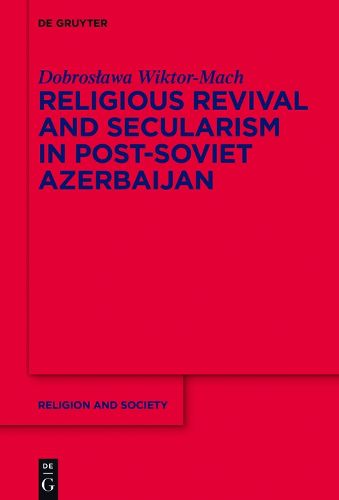Readings Newsletter
Become a Readings Member to make your shopping experience even easier.
Sign in or sign up for free!
You’re not far away from qualifying for FREE standard shipping within Australia
You’ve qualified for FREE standard shipping within Australia
The cart is loading…






The book explores the complex world of Islam from the perspective of its adherents and activists in Azerbaijan. Baku, the most secular Muslim capital city, is a battlefield for the minds and souls of ethnic Muslims. Visiting pirs was till now the typical expression of religiosity among Azerbaijani Muslims. Sunni-Shia division was blurred. Nowadays, Shia and Sunni Muslim movements propose new distinctive identities. Foreign and local preachers took advantage of liberal religious policies of the 1990s to promote their ideas. Salafis stress the pristine Islam and the idea of universalism, while Shias underline rationality in their faith tradition. Turkish model of Islam is more inclusive towards local customs. Sufism, although not as powerful as before, also finds a committed audience. Finally, independent charismatic local leaders gain supporters. The book investigates how this pluralism affects both religious groups and believers. Competitive environment requires effective strategies and flexibility. In this process, the traditional dominance of Shiism is challenged by Sunni movements. Shiism, however, is not giving up and adapts its concepts and practices to contemporary contexts.
$9.00 standard shipping within Australia
FREE standard shipping within Australia for orders over $100.00
Express & International shipping calculated at checkout
The book explores the complex world of Islam from the perspective of its adherents and activists in Azerbaijan. Baku, the most secular Muslim capital city, is a battlefield for the minds and souls of ethnic Muslims. Visiting pirs was till now the typical expression of religiosity among Azerbaijani Muslims. Sunni-Shia division was blurred. Nowadays, Shia and Sunni Muslim movements propose new distinctive identities. Foreign and local preachers took advantage of liberal religious policies of the 1990s to promote their ideas. Salafis stress the pristine Islam and the idea of universalism, while Shias underline rationality in their faith tradition. Turkish model of Islam is more inclusive towards local customs. Sufism, although not as powerful as before, also finds a committed audience. Finally, independent charismatic local leaders gain supporters. The book investigates how this pluralism affects both religious groups and believers. Competitive environment requires effective strategies and flexibility. In this process, the traditional dominance of Shiism is challenged by Sunni movements. Shiism, however, is not giving up and adapts its concepts and practices to contemporary contexts.